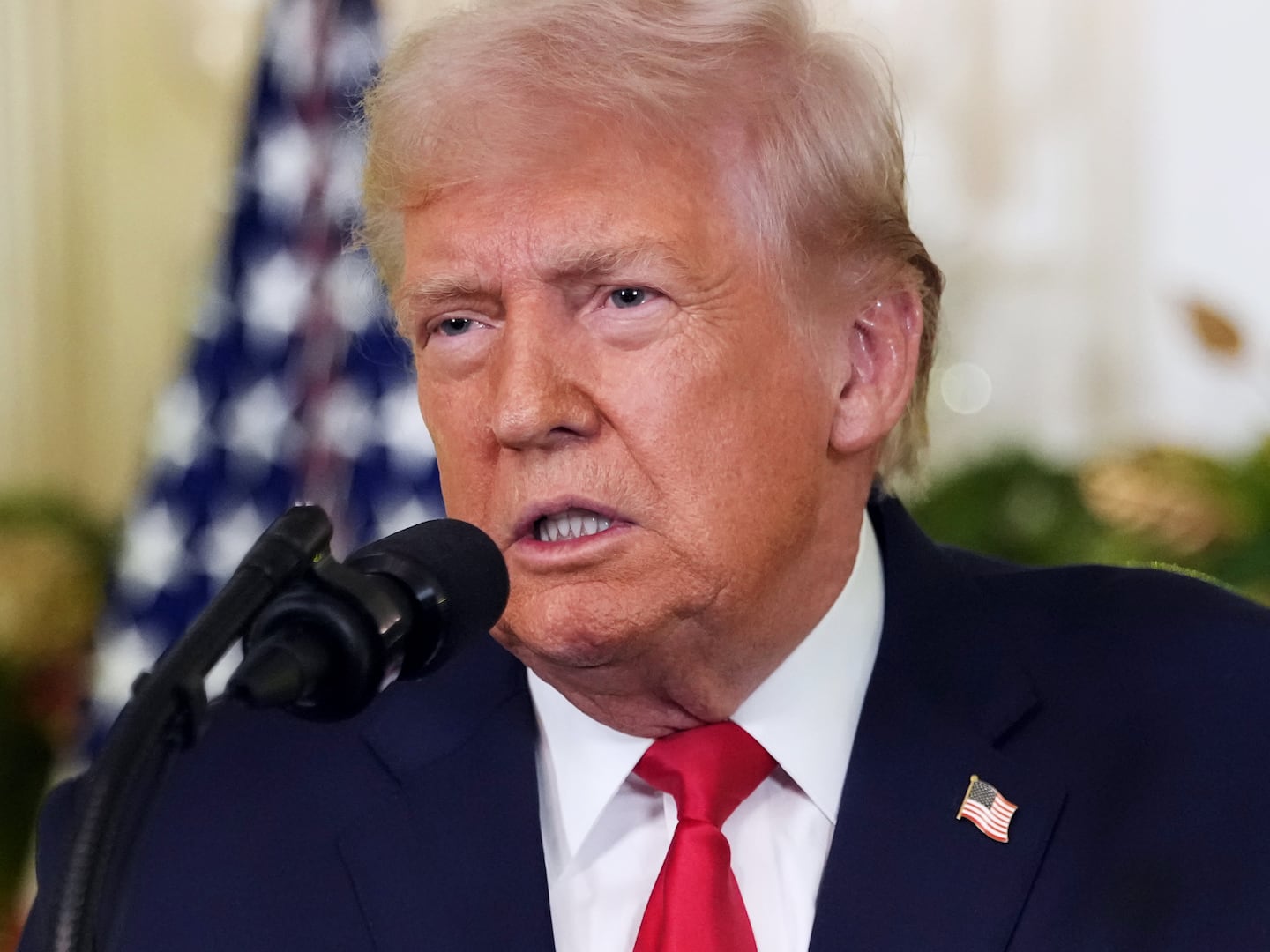Emmanuel Macron once held hands with Donald Trump. I just don’t see Joe Biden doing that.
Macron is 44. Biden will be 80 in November. Macron, a former finance minister and the son of a physician and a professor of neurology, studied philosophy and worked as an investment banker. Biden grew up in a middle-class home in Pennsylvania and Delaware. His father ultimately enjoyed some success as a car salesman. Macron is very French. Biden is American as apple pie. The politics of France and the U.S. are very different.
Yet, in the wake of Macron’s victory in the first round of France’s presidential elections this past weekend, senior officials in the White House are watching the run-up to the final round of French voting very closely. For all the differences between the two leaders, their political fates turn on a common challenge: Both must mobilize voters on the political left to ensure that their countries do not make a hard right turn with potentially devastating domestic and international consequences.
Macron finished first among all candidates in last Sunday’s election. He won approximately 28 percent of the votes. In second place, thus earning the right to face him in the run-off, was right-wing candidate Marine Le Pen, who earned just over 23 percent of the votes. The third place finisher, representing the French left, was Jean-Luc Mélenchon with 22 percent of the vote. Mélenchon immediately urged his supporters not to vote for Le Pen but withheld his explicit support for Macron who has been criticized by those on both the left and right as a “president for the rich.”
Polls project that Macron will edge out Le Pen. One showed Macron’s lead as very narrow at 51 percent to 49 percent, while another showed him with the support of 54 percent of voters. But all come on the heels of an election that saw a record low voter turnout from a disaffected French electorate.
Macron’s popularity, like Biden’s, has lagged due to inflation and the lingering effects of COVID. In fact, while the most recent Morning Consult leader ratings show Biden with an approval rating of 44 percent, Macron is at 39 percent. (It’s worth noting that many leaders are suffering from the global economic and public health challenges of the past couple of years, with those from Germany, Japan, the U.K., Australia, South Korea and most other developed nations no more and sometimes less popular than the U.S. president.)
Voter disaffection could prove critical in the French elections. Indeed, turnout among Mélenchon’s supporters could prove decisive. If the right is mobilized and the left does not show, a close race between Macron and Le Pen could tip in the favor of the right-wing leader. This echoes the concern of some Democratic Party leaders in the U.S. who, already facing the uphill struggle that midterm elections usually represent for the party of the incumbent president, are worried that supporters frustrated that key platform priorities of the U.S. left have not passed could stay home. Just as Mélenchon supporters could give the right a shocking victory if they stay home, if core Democratic constituencies do not turn out in November the GOP could win back both the Senate and House and perhaps a very substantial majority in the House.
Le Pen has dialed back her anti-immigrant, nationalist rhetoric and refocused on the economic issues of core interest to many French voters. She has also distanced herself from her previous embrace of Vladimir Putin, going so far in the wake of the invasion of Ukraine as to destroy a million pieces of campaign material that featured a picture of her and the Russian leader. In American terms, she has Youngkinized herself.
Meanwhile, Macron has reached out to win the endorsement of left-wing leaders. He has also stepped away from a proposal to raise the retirement age that was very unpopular on the left. And he has stepped up criticism of Le Pen as a threat to Europe in a time of crisis, given her historic Euroscepticism, closeness to Putin and proposals to pull France out of NATO’s command structure.
These steps presage what Biden and the Democratic Party are likely to have to do in the months leading up to November. Proposals to help offset inflation are already front of mind as in this week’s announcement of rules permitting higher ethanol content in gasoline (which will help lower prices). Expect more steps like that. Similarly, while the recent confirmation of Judge Ketanji Brown Jackson to the Supreme Court is expected to shore up support among Black voters, more steps will be necessary given the failure to pass voting rights reforms. Another step that Pramila Jayapal, the head of the Congressional Progressive Caucus, has recommended is cancellation of student debt, which she calls a “racial justice issue”—a single step she estimates would raise the wealth of Black families in America by 40 percent
Biden is also expected to turn up the heat on GOP leaders and rank-and-file members who have been supportive of Vladimir Putin and weak in their support for NATO, much as Macron has done with Le Pen. The current global crisis underscores the importance of the stronger Atlantic Alliance that Biden has played such a central role in rebuilding, and there is a sense among senior Democrats with whom I spoke that the months ahead will see more of a gloves-off approach regarding Trump and top Republicans on that front as well as in their efforts to overturn the 2020 elections.
While France’s election will not necessarily predict what happens in America’s, Washington will be paying close attention over the next two weeks to what happens to a centrist leader facing challenging global circumstances and a tough race against a right-wing alternative who poses a legitimate threat to Western security and cohesion.
Democrats here will be looking for lessons they can draw in their efforts to energize both the left and center elements of their base to produce an outcome in November that confounds the grim expectations of many pundits and pollsters.






